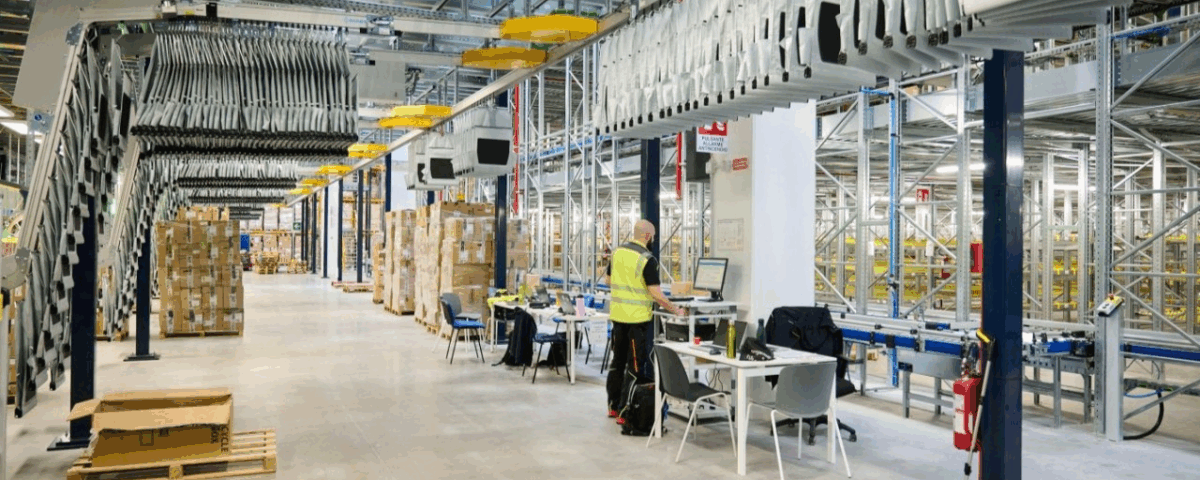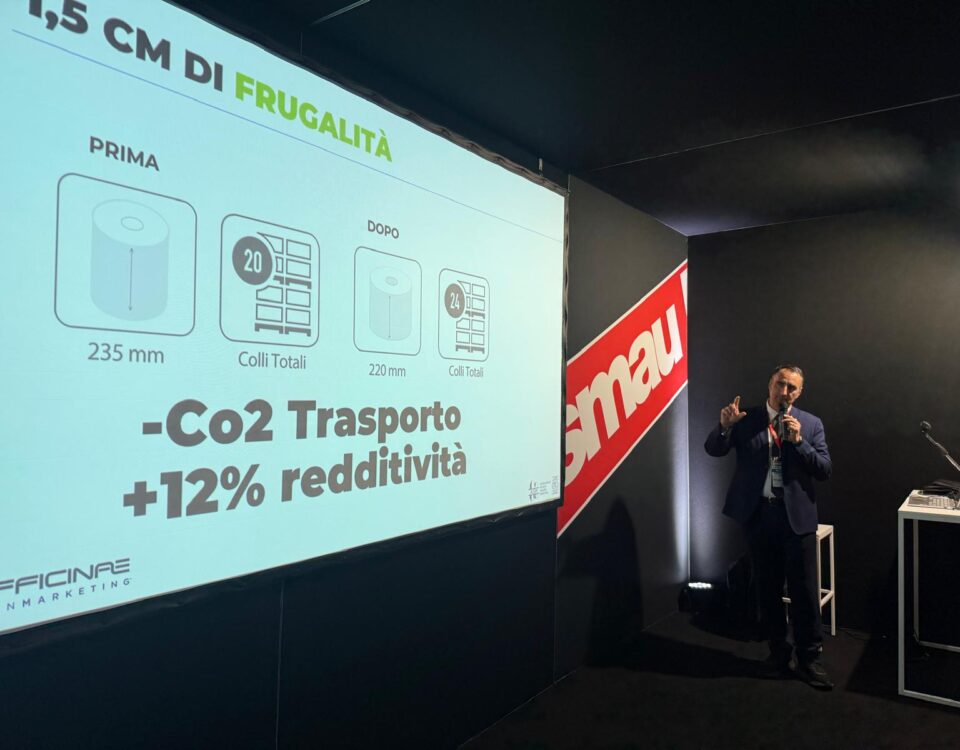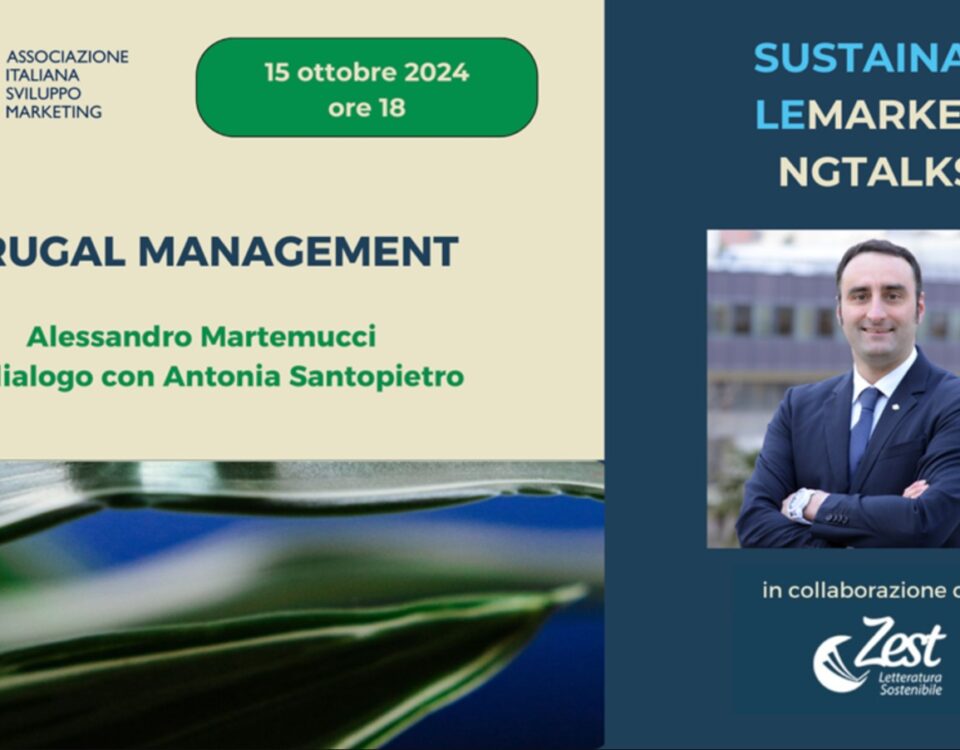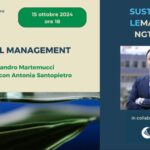
Frugality and sustainability: a winning combination
8 October 2024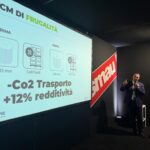
Basilicata takes centre stage at SMAU Milano 2025 with Alessandro Martemucci’s Neverending Marketing
6 November 2025In the world of fast fashion, where collections follow one another at a fast pace and the market is driven by seasonal
logic and fleeting trends, one of the main problems for retailers is unsold inventory. Garments that fail to find a buyer
quickly become a logistical, environmental, and financial burden. However, in an increasingly sustainability-oriented
context, some have decided to tackle this issue with a systemic vision and concrete, frugal innovation.
This is the case of OVS, the leading Italian clothing group with over 2,200 stores in Italy and abroad and a turnover of
1.5 billion euros in 2023, which has inaugurated a cutting-edge center in Bari to address the problem of unsold
inventory in a radical way. Here, in the industrial area of the city, a multifunctional technological hub of 15,000 square
meters has been established, dedicated to the reconversion, reconditioning, and redistribution of garments that remain
unsold in the retail network
The Problem: Unsold Garments and Warehouse Disorganization
Every year, OVS puts over 200 million garments
on the market. At the end of each season, between 5% and 10% return to the warehouse. The reasons are varied:
- Size gaps that compromise the assortment
- Orphan garments that cannot be matched with others in the collection
- Design errors or poorly performing models
- Mismatched sizes and colors on a national scale
- Distribution problems along the retail chain
- Damaged or manipulated garments
All these elements generate fragmented and disorganized residual stocks. Without an advanced management system,
these garments become warehouse immobilizations and, even worse, potential textile waste.
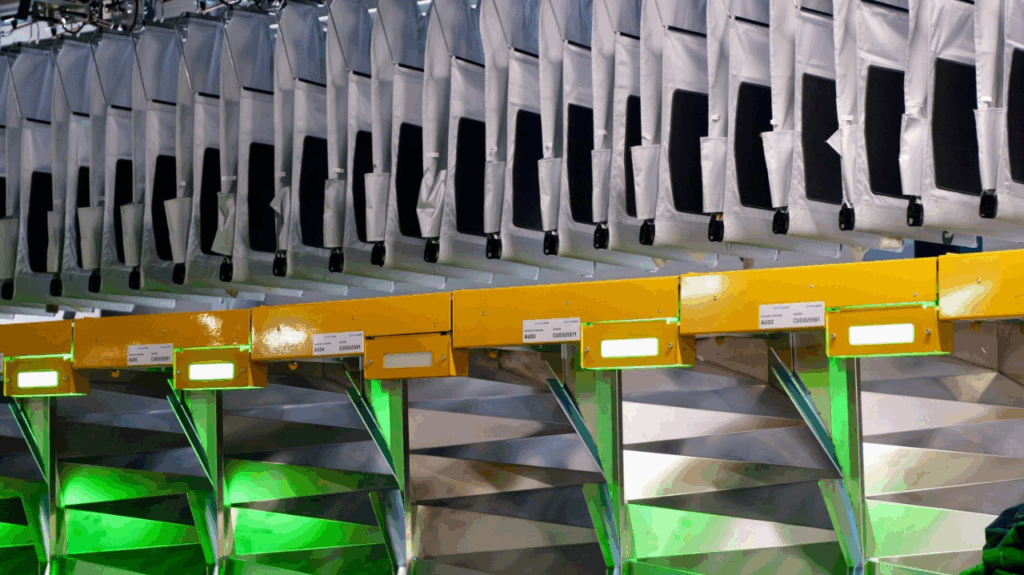
The frugal solution: circular economy applied to fashion
From this awareness comes the Bari project, presented to the
press by Stefano Beraldo, CEO of OVS S.p.A., as an integral part of the group’s strategy for ecological and digital
transition.
“We have delved into the characteristics of this phase of the production cycle and realized that there were business
opportunities and environmental protection,” said Beraldo. “The end of the product cycle can be managed with
mechanization and innovation.”
The centre is equipped with a reconditioning plant capable of processing 70,000 items per day, with the ambitious goal
of reaching 15 million recovered pieces by 2026. The returned items are classified, sanitized, repackaged, revalued, and
redistributed according to a new optimized assortment criterion.
Not only that: those that cannot be reintroduced into the sales network are responsibly disposed of or destined for
further uses (such as transformation into new textile materials), in full spirit of the circular economy.
Lean efficiency and frugal management
The project fully embodies the principles of lean thinking: elimination of waste,
enhancement of existing resources, optimization of logistics flows. It also fits into the logic of frugal management,
meaning the ability to do more with less, reducing costs and environmental impact through innovation and creativity
through innovation and digitalization.
This is not just a green investment: it is a true industrial strategy. Unsold items, far from being a problem, become
secondary raw materials to create new value.
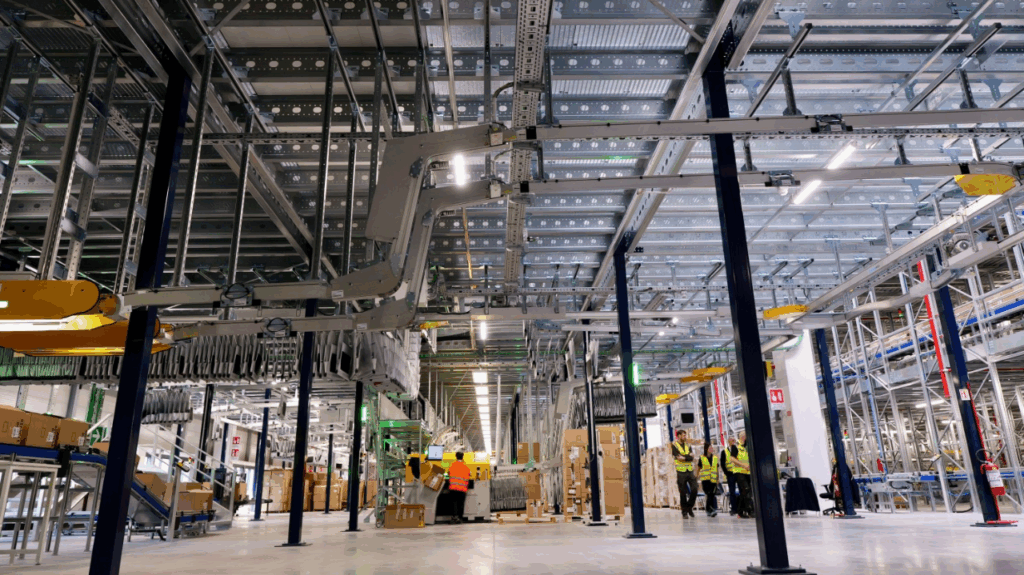
Employment Impact and Digital Innovation
The hub required a total investment of 33 million euros, made possible also thanks to the support of Puglia Sviluppo
through a program contract. To date, the center employs 55 people, including graduates in digital disciplines, experts in
artificial intelligence and cyber security, and operators specialized in garment reworking. Once fully operational, the
workforce will increase to 125 employees.
The center, in fact, does not limit itself to mechanical processes: it is also a hub of technological experimentation. AI
algorithms are used for predictive demand analysis and assortment planning. Advanced data management systems
track the life cycle of each garment, facilitating quick and data-driven decisions.

A model for the future of fashion
With this initiative, OVS demonstrates that there is no longer a clear line between
production and post-sale: every garment must be designed not only to be sold but also to be regenerated, reintroduced,
and rethought. A circular approach that also has significant impacts in terms of brand reputation, customer loyalty, and
regulatory compliance.
In a sector under increasing pressure for environmental and social impact, the OVS center in Bari represents a concrete
and scalable response. A virtuous model where innovation, sustainability, and economic value intertwine.
Because, as Beraldo emphasized::
“There is no business without safeguarding future generations.”

